Top 2 Bass Fishing Records in Michigan (2025 Updated)
Share this with every angler you know!
When you think of bass fishing records, your mind probably goes straight to states like California, Georgia, Alabama and Texas. When you think of Michigan, the massive sturgeon and various other unique species are probably what catches your attention. However, Michigan actually has some good bass fishing in store, and it has the state records to prove it.
Today, we want to go over those bass fishing records in Michigan. If you're a Michigan native, you might just learn that the musky, sturgeon and other Michigan favorites aren't all you have the potential to make impressive catches with, and if you're not, some of these records might get you to book your next trip to the Great Lakes area.
Let’s get started.
Newsletter Signup
How the List Works:
Michigan’s records for largemouth bass don’t exactly stack up with the country’s biggest largemouth producers, but they are still substantial, and even seasoned vets will find plenty of challenge and reward by fishing Michigan’s waterways.
With that being said, smallmouth bass are much more prevalent in the state, and we’ll be covering the records for those, as well.
Records can be broken into weight, length, and even specific gear setups. So, we’re going to focus on the more general bass fishing records in Michigan focused on sheer weight and overall size.
The State-Record Largemouth
If you’ve checked out our lists covering other states, you’re probably used to seeing massive 20-pound fish at this point. For Michigan, that’s simply not the case.
Michigan’s current state record for largemouth bass is 11 pounds and just a little more than 15 ounces. By world-record standards, that’s not much. However, it’s far larger than the average bass caught, and the good thing about this record is that Michigan is known for consistently producing these above-average fish.
With other waterways, you’ll likely average out with 3 to 4-pound bass, and occasionally, someone will pull out a massive specimen that crushes the record books. In Michigan, pulling in bass that are in the 8 to 10-pound range is fairly common.
Here’s the rough part. The nearly 12-pound record was set all the way back in 1934 by William Maloney, before sport fishing was a big deal or even commonplace. That means that, after almost a century, even one of the smaller state records is yet to be beaten. On the other hand, if you manage to be the one to break that old record, it’ll hold a lot more weight than someplace like Texas or California where the state records can jump back and forth in a matter of weeks or just a couple of years.
The record was set at Big Pine Island Lake, and the spot is still known for coming relatively close to it regularly.
With this being such an old record, since before sport fishing was a big deal, there isn't much information about it in terms of what was used and how it all went down. Unlike the famous Perry catch that set a nearly century-old world record, it simply wasn't as headline-worthy. However, it can be assumed that the fish was caught similarly to how most other large bass were caught during the period, either on live bait looking for dinner or on one of the few bass fishing lures anglers were using back then.
As well as Jack Rorex who caught a largemouth bass weighing 11.94 pounds and measuring 26 inches in length in 1959 at Alcona Dam Pond in Oscoda County.
Smallmouth Bass Records in Michigan
With smallmouth, the story is a little different. Michigan is known for its amazing smallmouth fisheries, and the species has made more than a handful of anglers jump for joy at the thought of a state record. However, this starts out similarly to the largemouth situation.
The previous state record for smallmouth bass was set even further back in 1906. The original bass was a Smallie weighing in at 9.25 pounds and 27.92 inches in length. Also, similarly to the largemouth record, there isn't much information available on the catch due to the era it was caught in. For the time period, fishing was more of a fun pastime and way of life than a sport like it is, today. One of the few reasons George Perry’s world-record catch was so well documented is because of how huge it was, and it skyrocketed to international fame. Smaller state records simply weren’t given the same attention back in the day.
However, that’s where the similarities end. In 2015, the Michigan smallmouth bass record was finally broken, and this time, there’s plenty of information surrounding the catch due to the prevalence of proper record keeping, standards, and of course, the angler’s willingness to treat the catch like a big deal.
In 2015, 18-year-old fisherman Greg Gasciciel hooked into a once-in-a-lifetime fish that would put a stop to Michigan’s seemingly unbreakable bass records.
Image source: Michiana Outdoors News
Greg’s fish weighed in at 9.33 pounds, just slightly heavier than the original record’s weigh-in, and it was a slightly shorter 24.5-inch length.
In some states, the length would be considered before declaring it a state record, but Michigan’s standards only consider the weight of the fish.
As we said, there are some benefits to records being broken more recently. Fishermen are much more concerned with the gear and barometric pressure than they were in the early 1900s and earlier.
Greg caught the now-famous smallmouth bass on a standard green grub lure while baitcasting around the structures at Hubbard Lake in Alcona County. The previous record was taken from Long Lake in Cheboygan County.
If 9.33 pounds doesn’t sound like much, you have to take the world-record Smallie record into account. It was set in 1955 by David Hayes, and it weighed an astonishing 11.15 pounds. Specifically, it was the All-Tackle world record, which allows for trolling, all forms of lure and baits, etc. Hayes caught his fish on a small worm while trolling through Dale Hollow Reservoir in Tennessee, the nation’s prime smallmouth bass spot. The record put in place by Hayes was practically drowned in controversy, and it was claimed several times that the dock owner David brought the fish to was filled with lead weights to boost its weigh-in stats. However, those claims were not substantiated, and while the record was stricken for a brief period, it was added back in once the claims were debunked. So, you can see that 9.33 pounds is actually fairly close to the world record, and it is certainly the achievement of a lifetime for an 18-year-old just starting his journey into adulthood.
If any of this is an indication of Greg’s dedication to bass fishing and his potential as time goes by, we might very well see the Michigan native’s name right up there with David Hayes and other big names in the bass fishing community.
What This Means for You
Michigan might not have record after record for bass, and the major records that are available might not seem impressive to those desensitized by reading about the astonishing records set elsewhere, but there is plenty to learn from them, regardless.
First, with a deep dive, you’ll notice that the fish caught in Michigan tend to get close to the state records for both species relatively often. Five, six, and even seven-pound Smallies are regular catches for experienced anglers, and while the state isn’t known for its bass fishing, it’s not uncommon for five to eight-pound fish to get on an experienced angler’s line. With that level of consistency, every time you cast, you could potentially nudge your way past the state record; even if it’s not likely that you’ll blow it away.
Then, a smaller detail can highlight why state records aren't as lengthy as they are in other states or on a global scale. Before a fish can be entered into Michigan's state records, it MUST be weighed and analyzed by the Department of Natural Resources. That means the fish has to be caught, kept, and taken to an appropriate facility for its weigh-in and measurements. That's not the case with some states and the world record books. For example, the largest bass ever caught was Weekly's 25-pound largemouth bass. His team and he ultimately decided not to go through with getting it entered into the record books, but the catch was CPR, or Catch, Photograph, and Release. They filmed their catch, weighed it on their boat, and got it back in the water for its own good, and the fish was still technically eligible for going into the record books.
In Michigan, that simply doesn’t work. That can cause catch-and-release fishermen to think twice before pursuing a record attempt, or the hassle might encourage those who have caught true trophy-sized bass to simply return it to the water instead of getting in contact with the DNR. Ultimately, it means it’s a lot less likely that big catches, even if they’re very close to the record, will be taken in for official recognition.
Then, you can see that both records were caught in dramatically different spots. In fact, they were counties apart. When you look at the big bass producers around the country, most of the records are caught back-to-back in the same county and usually the same waterways. This shows that, while there are certainly better bass spots in Michigan, you don’t need to feel locked into one small area while trying to break these long-standing records; the state is fairly well populated with consistently decent bass from border to border.
Places to Target a New Michigan Bass Record
As we stated, Michigan is fairly well stocked with bass that consistently come up close to the record weights for smallmouth and largemouth bass. However, there are certainly some premium spots where your chances of breaking bass fishing records in Michigan will be far more favorable.
Here, we’ll cover some of the spots known for larger bass in Michigan.
Hubbard Lake:
This one should come as no surprise. After all, you just read about it, and it’s where Greg Gasiciel broke the state’s smallmouth bass record in 2015. After more than 100 years, Hubbard Lake produced a fish that beat the smallmouth record, and there are plenty more fish caught within that range every year. Remember, Greg only beat it by less than a quarter of a pound. So, every large fish can potentially get you in the record books.
Big Bass Lake:
Big Bass Lake is, as the name suggests, the premier spot for targeting big bass from both of Michigan’s main species. While this lake hasn’t broken records that have been officially recognized, it does consistently produce fish tipping the scales towards the state records in terms of size. As a big reserve, there are also numerous opportunities available to turn the whole trip into a big ordeal. There are lakeside cabins available that any fisherman would love to call home during a weekend-long mission to claim a record, and the water reaches 45 feet at its deepest location with plenty of structures and natural bass zones to take advantage of.
Just make sure you bring your digital scale and get a hold of the DNR as soon as you catch something that might break the record.
Arbutus Lake:
Arbutus is a bit of a gamble, but it’s certainly sure to be fun to fish. It’s not actually one lake. It’s five lakes that are joined by smaller tributaries, and it’s fairly massive. The lake system also has a tremendous largemouth bass population.
Most of the bass caught at Arbutus are smaller, and they certainly won't impress a trophy fisherman, but the lake does churn out real hogs on occasion, and each time you get lucky, you'll be right up close or even surpassing the 11-pound 15 ounces record.
This is probably the best option on this list for pursuing a largemouth record while making a family-friendly day or weekend out of it.
Learn More with Bass Forecast
Michigan is a prime example of good bass fishing not meaning constant record-shattering. It has tons of bass that are plenty large enough for most fishermen, and the bass fishing records that have been set are longer-standing than most.
If you’d like to learn more about the records in other states, or just some tips and tricks to up your bass fishing game, Bass Forecast has you covered.


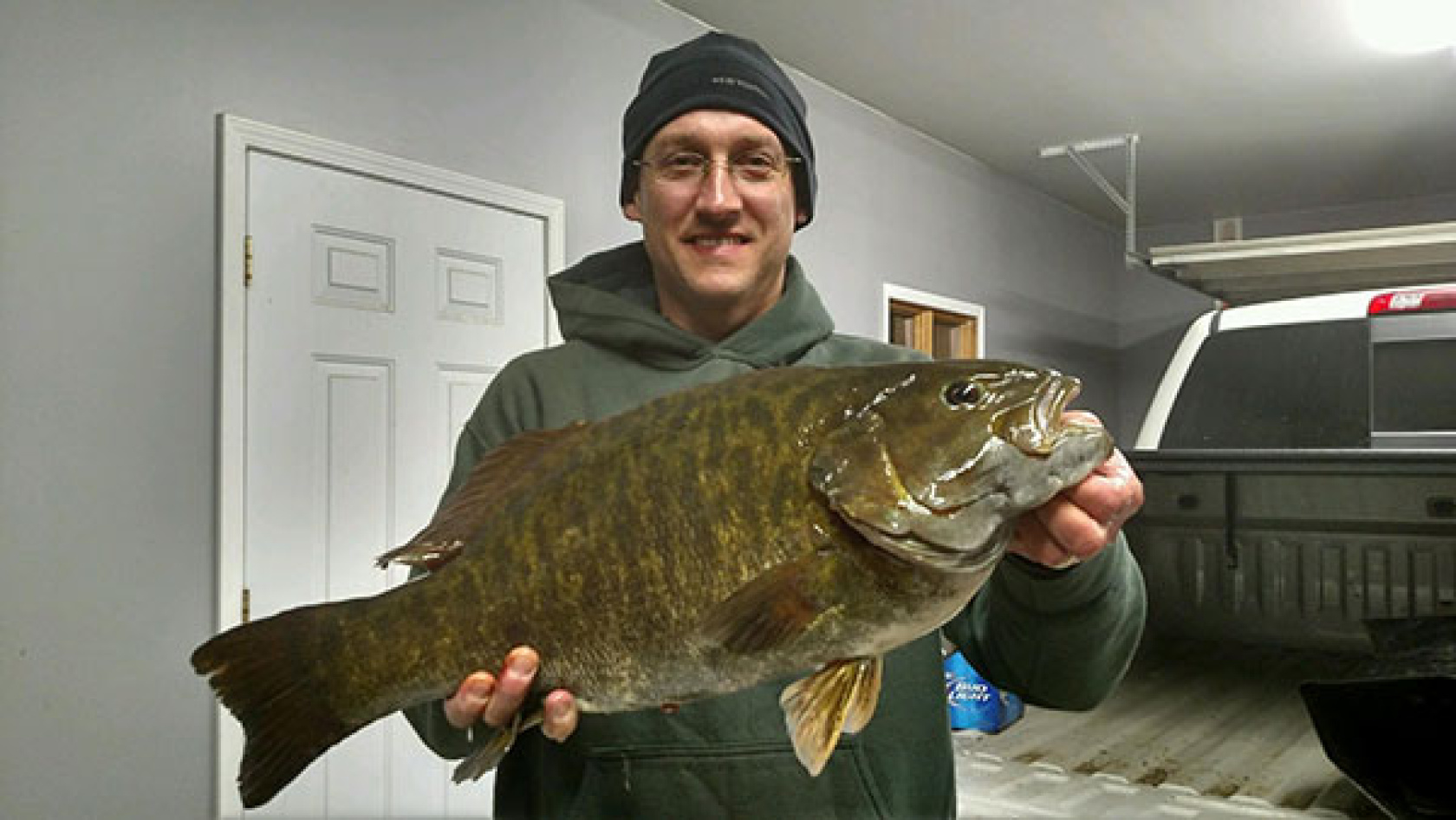

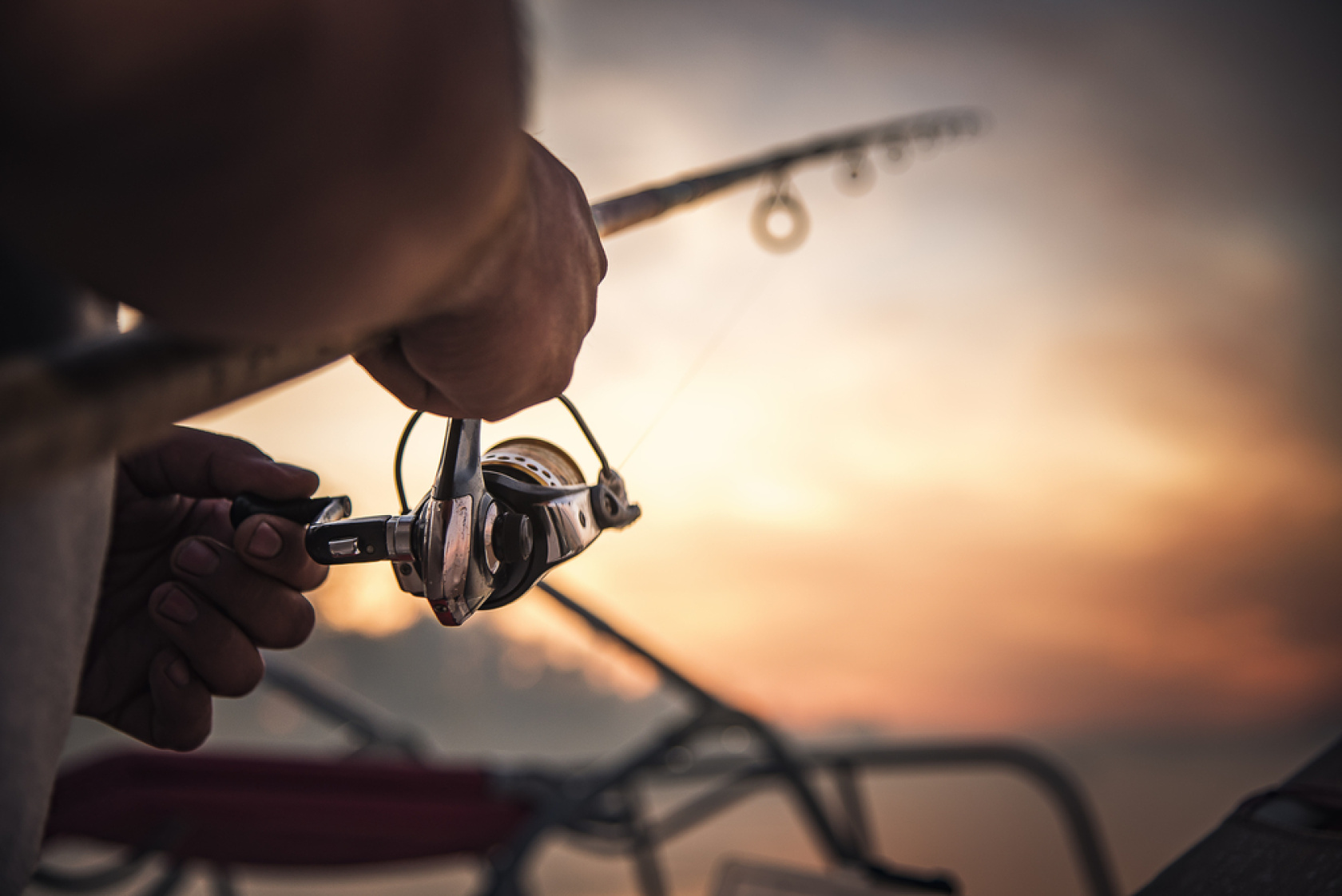
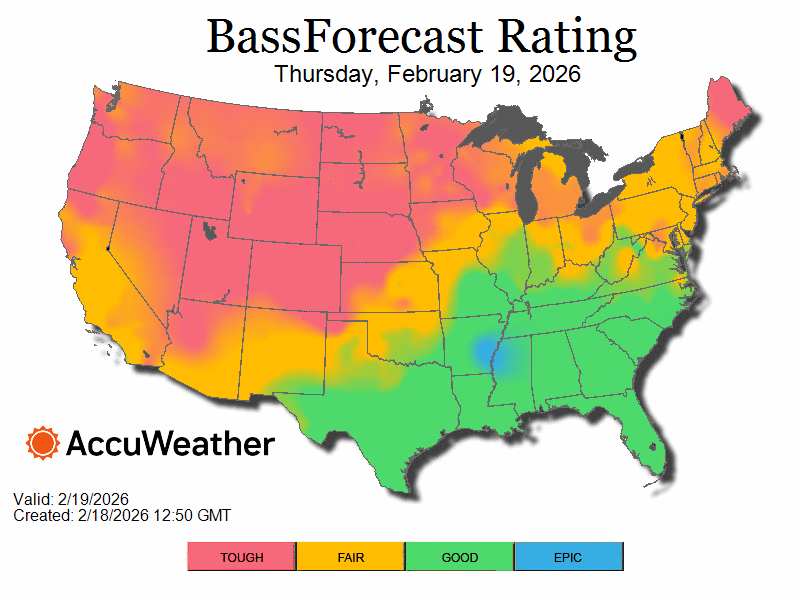

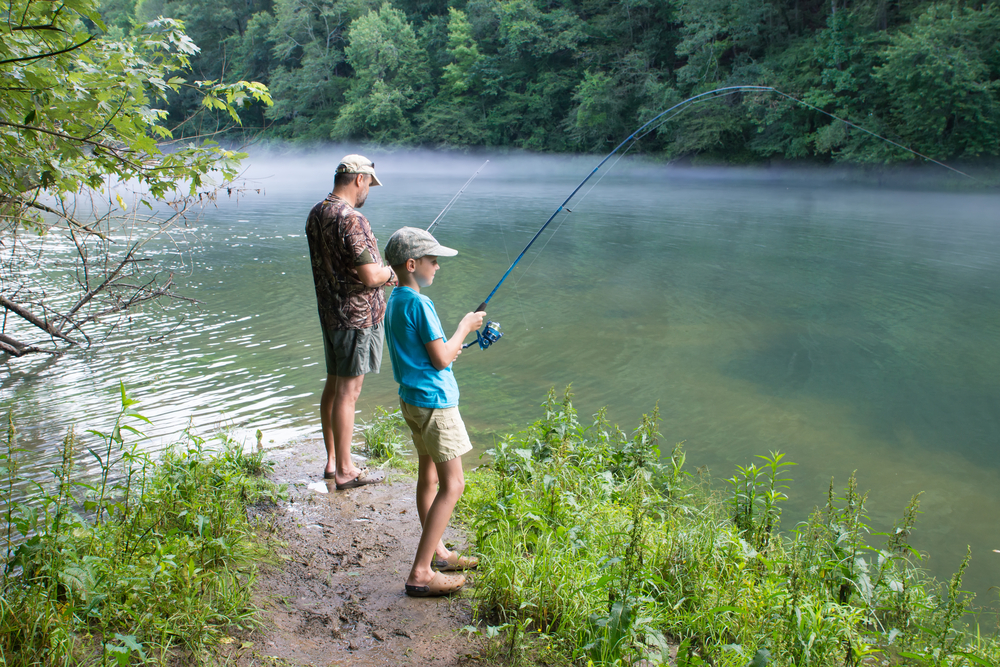
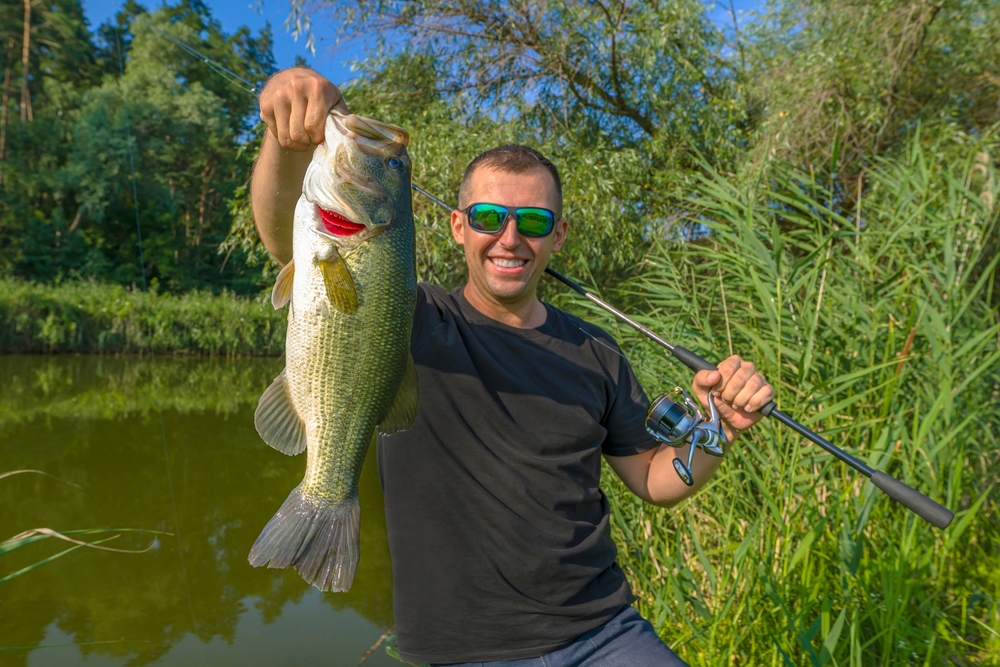
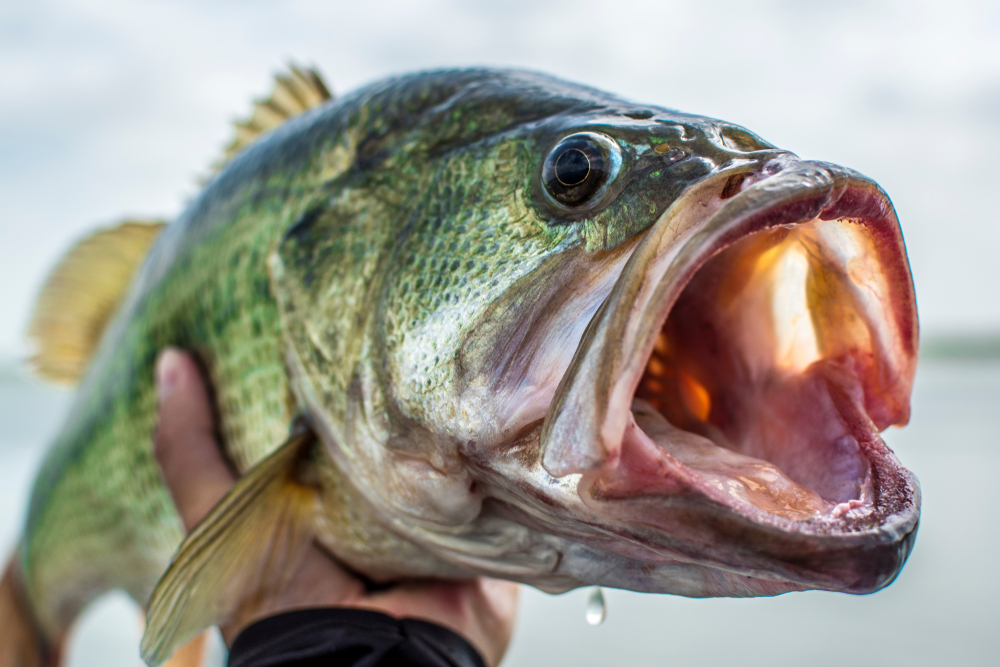
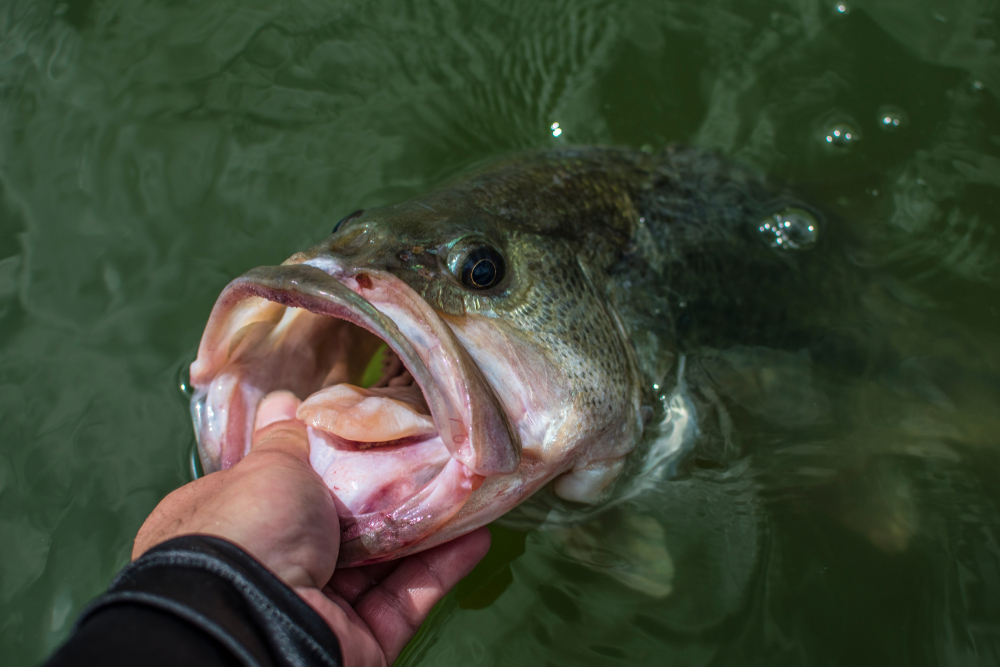
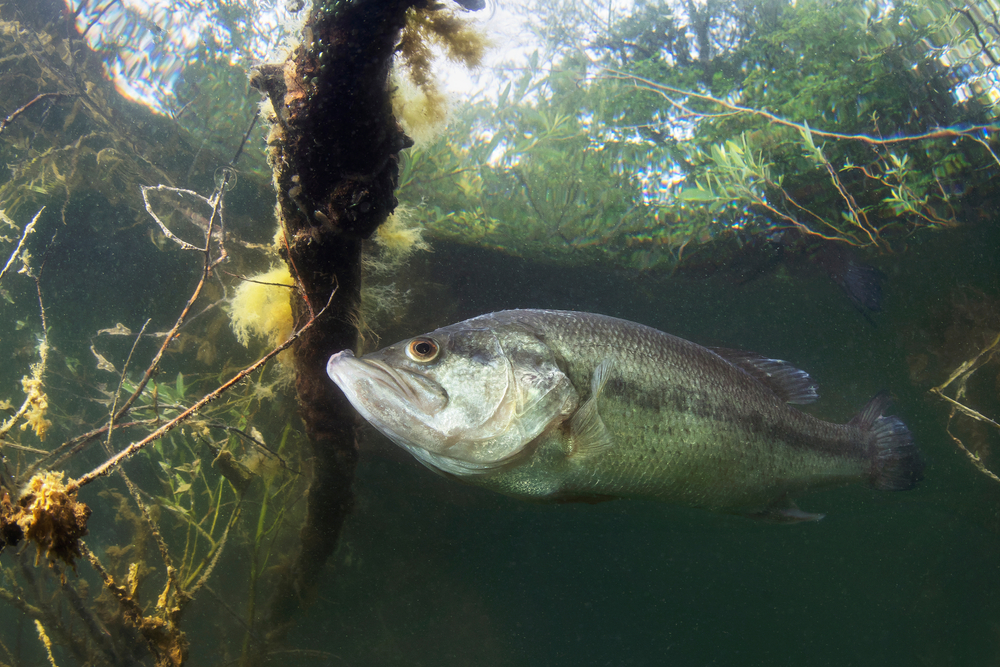


.png)
.png)